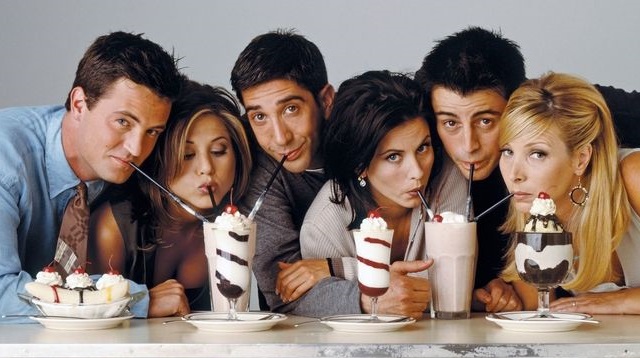Friends star Matt LeBlanc responds to claims the sitcom was homophobic
The show has been accused of making problematic gay jokes since debuting on UK Netflix last month.
By Will Stroude

Friends rightly stands as one of the world’s most beloved sitcoms, but the many fans have discovered during recent re-watches, the TV world was a very different place in 1994 than it is now.
The hit comedy series – which aired for ten seasons until finally wrapping up in 2004 – has faced some gentle criticism since it began streaming on UK Netflix last month over jokes related to gender, sexuality and body image which haven’t aged well over the last 20 years.
Now, former show star Matt LeBlanc, who played loveably stupid actor Joey Tribbiani, has responded to claims that Friends was guilty of homophobic and fat-shaming gags.
“I’ve heard those rumours too about people taking pot shots at Friends, but I don’t want to get into that. I disagree with all that,” the 50-year-old Top Gear host told the BBC.

“On Top Gear we tend to steer clear of any sort of political content, nothing too topical.
“On Friends we steered clear of that kind of thing, too. Friends was about themes that stand the test of time – trust, love, relationships, betrayal, family and things like that.”
Now don’t get us wrong, we love Friends as much as the next person, but we might have to disagree with LeBlanc’s claim that the show completely “steered clear” of problematic jokes over the course of its 10-year run.

While the series was certainly never hateful and its humour always came from a place of warmth, it did turn the idea of being gay into a punchline with surprising regularity.
So much so, in fact, that one fan has complied a supercut of all the times the show made a joke of someone’s real of implied sexuality, and it clocks in a rather uncomfortable 50 minutes long – enough to fill a full two and a half episodes of Friends.
As with so many things, however, it’s often not a clear cut case of laughing at a gay person’s expense: Were viewers being encouraged to laugh at Ross’s ex-wife because she’s a lesbian, or were they being encouraged to laugh at Ross’s over-the-top discomfort?
You could certainly argue a case for both, and ultimately it might all depend on the viewer. See for yourself below:
